I traveled about 15,000 miles in the air and another 1,200 on roads and highways during my recent bi-annual excursion to the Lone Star State. A streamlined version of what happened is as follows.
In the weeks leading up to it, I had two Covid vaccinations and several negative tests. Despite bringing all the documentation necessary to the Seoul airport, I soon learned that another test would have to be performed there. That was facilitated by the presence of my friend Hans Lee, a Korean who works in Indonesia. Just completing his two-week quarantine, he also helped me make a deal with LG so I could use my phone overseas. Finally, Hans took me to an office where I purchased a re-entry permit for use 11 days later.
The flight to Dallas went OK, but the one from there to Austin did not. Somehow, the American Airlines people made a mistake. After all of us were on board and our baggage loaded, we had to get off. We did so amid much grumbling. An hour later, they said we could get back on the plane. As we landed in Austin, the pilot took the microphone and admitted that AA flight 2199 had not been one of their prouder moments. Hey, we arrived safely.
A white KIA was waiting for me at the Avis rental car station, and I was tooling down the very familiar Highway 183 soon enough. Fortunately, the Rodeway Inn near the University of Texas was still in business. Not exactly a five-star hotel, it is a bit seedy; I’ve noted some dubious characters there over the years. But the Indian man who runs it is solid and reliable. I moved in for two nights.
The first thing I did on Tuesday, October 12, was to visit the campus. I wanted to take stock of my alma mater. I saw that Speedway, the street that runs north and south through the middle of the 40 Acres, had been turned into a pedestrian mall. Seems like a good idea to me. I came to the north end of Memorial Stadium and located the new statue of Julius Whittier, UT’s first black varsity football player. I wanted a photo of me standing in front of it, and when a tall, husky young black man came in my direction, I asked him to do this favor. He gladly complied. Almost certainly a member of Steve Sarkisian’s team, he was on his way into the stadium. More than three times his age and White, I have a perspective that is bound to differ from his.
Although I had no other encounters while at UT, I overheard numerous coeds (I am aware that is a dated term, but I use it nonetheless) talking and using the word “like” much too often. This verbal tic drives me crazy. I made sure to visit the quad south of the Main Building, noting that the statues of Robert E. Lee, Albert Sidney Johnston, John H. Reagan and James Stephen Hogg—all of whom had Confederate ties—had been removed. The pedestals, strangely enough, are still there. Why, though, does the statue of George Washington, father of our country, remain? He was a slaveholder, you know, and OBLM mobs have pulled down several statues of him in the last 18 months or so. I walked up the Drag (Guadalupe Street) and to the Posse East at the intersection of San Jacinto and Duval. One block away was 405 East 30th, where I lived during my junior year.
After buying four bags of zaatar (Middle Eastern seasoning) at Phoenicia Bakery, I drove to the Department of Public Safety office on North Lamar and set up an appointment for October 20 to have my driver’s license renewed. It is used only for these Texas trips and as a form of identification. Not far away was Central Market, where I met Sylvia Huntsman, the widow of former UT track coach Stan Huntsman. We talked as I gobbled down a big, fat Reuben sandwich.
I checked out of the Rodeway Inn the next day and went up Interstate 35 to Dallas. There I located the home of Gary Scoggins close to Flagpole Hill. We emptied his closet of more than 150 books I had bought from Amazon and unceremoniously dumped them into the back seat of my car. Gary and I went to a local BBQ joint, eating and talking while the hot tub in his back yard warmed up. We were there for another hour of male bonding, one Longhorn and one Aggie.
With no time to waste, I left Dallas, passed through Fort Worth and got on Interstate 20 heading west. My destination was Abilene, where I wanted to visit the grave of my recently deceased cousin, Pat Gary. For 40 miles or so, I drove through a torrential rain storm. When I saw a Super 8 Motel in Eastland, I was quite relieved and got a room. For a solid two hours, I removed the wrapping from those books (leaving an unsightly pile that must have displeased the proprietor the next morning), put them into five sturdy boxes, attached my Seoul address on all sides and taped them heavily. The next day, after Abilene, I would visit the classic post office in Cisco and mail them off for a cool $1,250.
One more thing about my time in Eastland: While walking to a nearby restaurant, I saw a number of highway patrolmen gathered between two of their cars. Outraged by how police have been vilified recently (“police brutality,” “police oversight,” “abolish the police” and so on), I hollered out a warm greeting. “Officers, I support you always!” They seemed pleased with this spontaneous effusion.
I reached Abilene by mid-morning on Thursday. With Pat’s legal guardian, Larry Baird, indisposed, I had all sorts of trouble getting permission to visit her grave. Among the half-dozen people I talked with face to face or on the phone was the chaplain of Abilene State School. This supposed man of the cloth gruffly accused me of “trying to skirt the process” and asked me to prove that I was Pat’s cousin! Perhaps realizing the absurdity of his stance, he softened and led me to a remote cemetery, one without any sort of sign out front. We entered and located her freshly dug grave. I ignored the chaplain and looked closely at the final resting place of my dear cousin. I pondered her life. No more than 10 minutes later, I was headed out of town.
(Despite Larry’s inability to help me in Abilene, he did inform me of one fact—my cousins Dennis and Shannon [Pat’s brother and sister] had attended her funeral on October 9. I found this shocking since they had ignored her for the previous 45 or so years. Perhaps they had come to assuage their guilt.)
On the way back to the D/FW area, however, I stopped in a ghost town of sorts called Thurber. It had been the site of a major coal mine and brick-making factory in the early 20th century. Thurber flourished and then was gone by the mid-1930s after oil was discovered in nearby Ranger. I toured a museum operated by Tarleton State University and learned some history I sure had not known before. A few buildings and a huge smokestack are all that remain of Thurber, which contributed greatly to industrial development in that part of Texas.
I rented a room for two nights at a Motel 6 in Denton, my home from 1979 to mid-1981. During that time, I visited the University of North Texas and Texas Woman’s University. At the latter, I came to the Little Chapel in the Woods—a National Youth Administration project dedicated by Eleanor Roosevelt in 1939—and saw part of a wedding. I went to the Denton County Courthouse to ascertain that its Confederate statue was gone and reminisced about various events from four decades past. Dinner was at a pancake house close to my motel. One of my fellow customers was a tall black guy who was either blatantly gay or a cross-dresser or a transsexual. I saw two other such persons during my trip, perhaps indicative of a social change I find baffling. And while I am at it, I will state that the number of tattooed people seems to have increased. I disapprove of this as well.
The highlights of the following day took place in Addison, a few miles south of Denton. First, I met Mark Evans at a coffee shop in a sprawling commercial area that is very different from what obtains in Korea. I had not seen him since we attended a Texas Rangers baseball game in 1976. He then walked me over to the Lazy Dog restaurant where I would be seeing Bo Carter. Bo, who presented me with a signed copy of his biography of Dizzy Dean, was the media director of the Southwest Conference when I was working on my first book. As with Mark, he and I had many things to discuss so we had to talk fast.
The Beeman Hotel, at Central Expressway and Mockingbird Lane, was the site of the 50-year reunion of Bryan Adams High School’s class of 1971. As check-in time was 3 p.m., I would have a few hours to spare. How to use them? I entered the Half Price Books store on Northwest Highway and—contrary to my vow before leaving Seoul—purchased another 10 books. Nine were sports-oriented, and one was about mass murderers; the pathetic Elliot Rodger graced the cover.
Now, about the much-anticipated reunion! I brought several of my books to give away, along with some “I love Korea” T-shirts. I had conversations of varying length and depth with such BA alumni as Jan Tucker, Dotty Gracey, Jeff Hall, Anne Mounts, Sharon Criss, Ben Davis, Bill Cash, Larry Johnston, Doug English, Janet Hescock, Diane Debenport, Alice Salas, Mark Beesley, Jeanne Livaudais, Billy Montgomery, Pam Meek, Debbie Hart, Julie Ibbotson and many more. Among those who did not come was Kathy Downer, of whom I had written so admiringly in Febrile Keyboard.
I checked out of the Beeman on Sunday morning. Don Chandler, who had also attended the reunion, and I then drove in separate cars to Mabank in east Texas. We had come to visit Howard Horton (a BA alum who had not been at the reunion) and his wife Libby. As with Don, I had not seen Howard in nearly 50 years. You can imagine the catching-up the three of us did. Howard and Libby live on 31 bucolic acres—so serene, so peaceful. I could not help contrasting it with my neighborhood in Gangnam, with big buildings everywhere, heavy traffic, noise and smokers galore. We parted, with Don going back to Dallas and me southeast to Nacogdoches.
I had lived in “Nac” in late 1975 when I spent a single semester at Stephen F. Austin State University. Despite having been there such a short time, I had many vivid memories. I smiled when thinking of collegiate hijinks at 200 Wettermark, working as a dishwasher at the Hungry Toad, playing basketball on campus and so forth. The young woman working the front desk at the motel on North Street said she was a senior at SFA and that her grandmother had been a student there during my time. Not her mother, her grandmother. Dinner was a subway sandwich at a shop across the way.
Although the motel offered a free breakfast, I skipped it the next day because I had so much driving to do. I got on Highway 59 and motored south. Spotting a post office in Corrigan—I was previously unaware of a Corrigan, Texas—I stopped and mailed the sixth box to myself in Seoul. Coffee was consumed at an old-time café in Livingston, and then I had to get back on the road. I passed through Houston and then angled southwest to Victoria. It was my second time to visit this town of 62,000, the first being about 25 years ago when I ran in the Victoria 10K. I found the Sky Restaurant on the edge of the airport. Waiting for me was Bill Wendlandt, captain and MVP of the 1983 Texas basketball team. Having recently undergone knee-replacement surgery, he was hobbling a bit. Bill paid for our steak lunch, and we discussed his health, his kids, his wives, his commercial real estate business, my reunion, hoops and more.
We said goodbye as I climbed into my KIA and he into his electric-powered Tesla. I went back up 59 toward Houston. On the way there, I came across a house owned by a man named Virgil. He is a hard-core Trump supporter and Biden hater, as was clear from the many colorful signs and banners hanging all over his house; he also had upside-down American and Texas flags. I pulled up to take a photo, and out he came. We talked for a few minutes, but a genuine meeting of the minds was impossible. While I voted reluctantly for Trump last November and hold Biden in contempt, I am much too middle-of-the-road to get on board with Virgil and his ilk.
I arrived in H-town around 5:30, and rush hour was bad but not horrible. Fifteen miles west was the home of my friend John Collins and his wife Sherry. John, with whom I roomed during our sophomore year at UT, was expecting to host me in a relaxed manner. But as soon as I walked in, I was asking him feverishly for help. I had learned that getting another negative Covid test would be mandatory before boarding a Korea-bound airplane. We drove from one facility to another. Only one, an urgent-care center, could give a quick (four-hour) turnaround. There was a restriction, however, as they would not accept people without symptoms. I had none and said so. The front-desk lady was adamant: no symptoms, no test.
John and I returned to his house, ate dinner with Sherry and pondered our options. We decided to return to that same place the next morning, expecting a new person up front. I would then lie, saying I had lost my sense of smell and taste, and had aching joints. Well, the same lady was there the next morning—14 hours later! But when we said I now had symptoms, she did not object. A test was administered, it came back negative, and I had proof to present at the Austin, Dallas and/or Seoul airports. I was prepared.
All these things forced me to cancel a scheduled meeting with my friend, former Rice track standout Mike Novelli, at Katz’s Deli in the Woodlands. Instead of going there, I drove down Interstate 10 and then up Highway 71 to Austin. Passing through downtown, I was greatly pleased to see a bumper sticker on a car that read “Reading is sexy.”
There were two more nights at the Rodeway Inn. Behind the desk this time was a young White woman with—you guessed it—tattoos on her arms and legs. I had expected to visit Salling & Levbarg, the people who do my taxes, but their office on West 9th Street was closed. I did, however, manage to see Alan and Blake Bergstrom, father and son, who run an investment firm which expertly handles some of my money. The aforementioned driver’s license renewal was effectuated, I toured UT once again, and I had migas at Mi Madre’s on Manor Road. Unfortunately, my friends, proprietors Aurelio and Rosa Torres, were not there. I signed and left a copy of one of my books for them.
I dropped off the KIA on Thursday morning and wheeled my orange luggage into the Austin airport. While there were some problems and frantic moments, I will spare you the details. No questions were asked about Covid testing or vaccinations there or in Dallas. But it was quite different back home—rigid protocols right, left and center. I had everything in order, and yet I was informed that I would have to endure a 14-day home quarantine after getting tested at the Gangnam Health Center. A specially designated taxi took me there and waited while I underwent my sixth test. A few hours later, I got a message stating that it was negative. Fine, but what about that quarantine? Hans, who had been so helpful to me on October 11, rose to the occasion again. He got on the phone and made some calls on my behalf. It was soon learned that the airport people had failed to see some of my papers and wrongly put me in the dreaded “Q” category. I was free, Hans said.
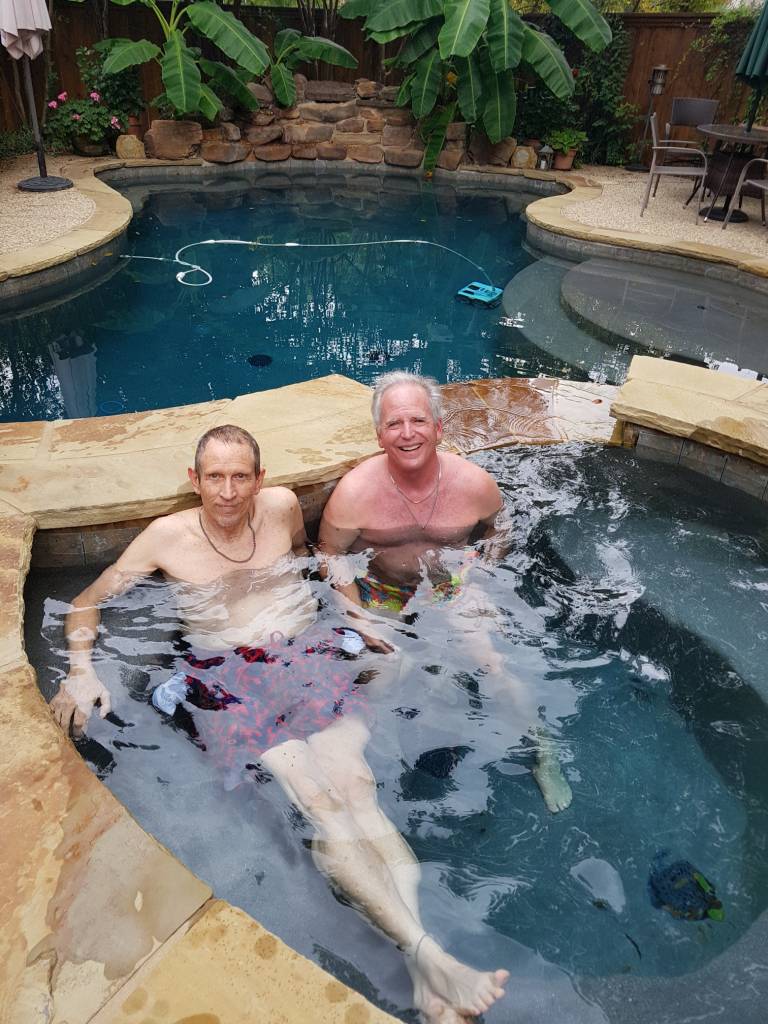
With Gary Scoggins in backyard hot tub, Dallas.
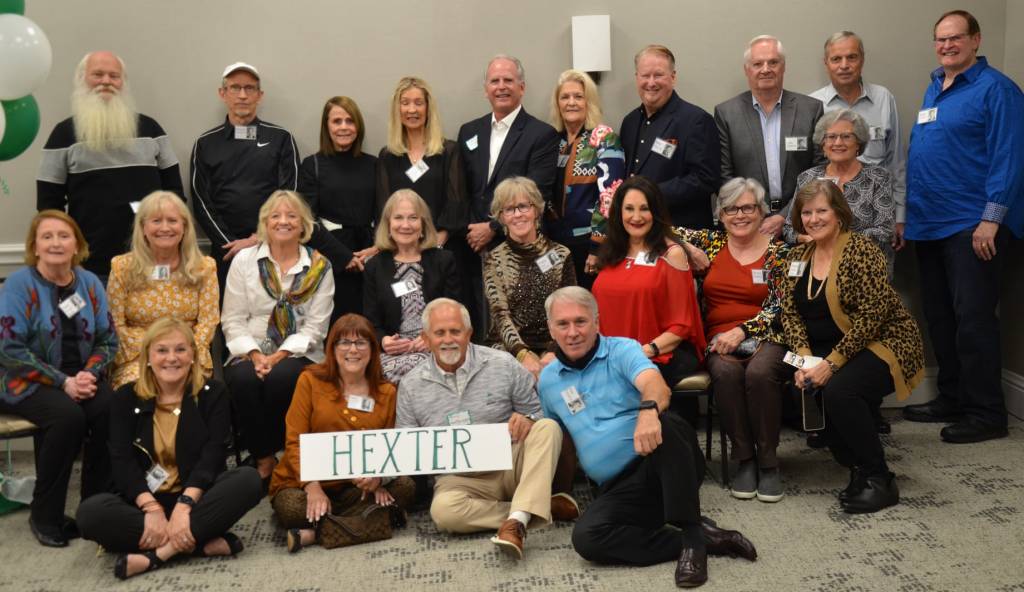
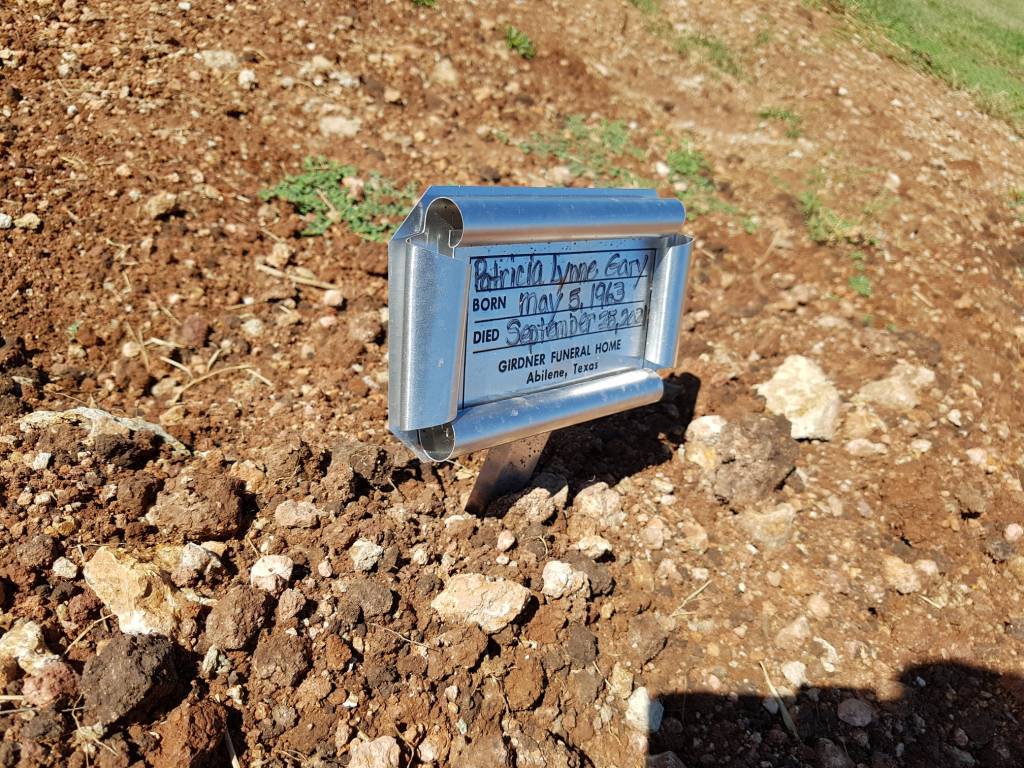
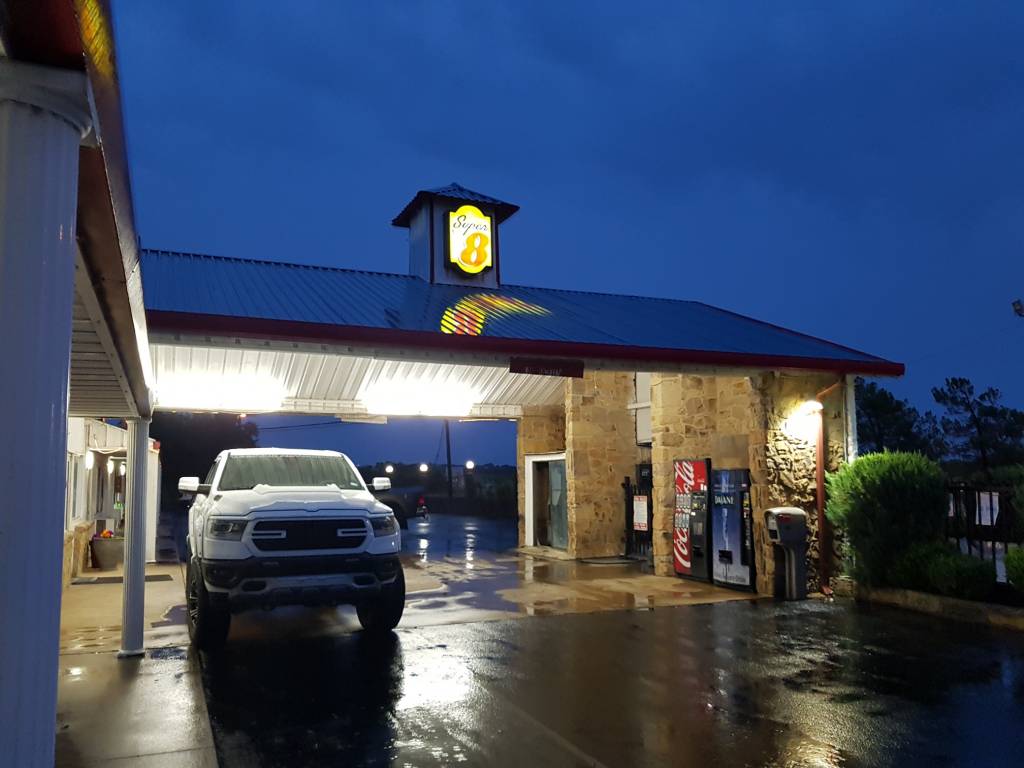
One of many places I stayed during October 2021 Texas trip.
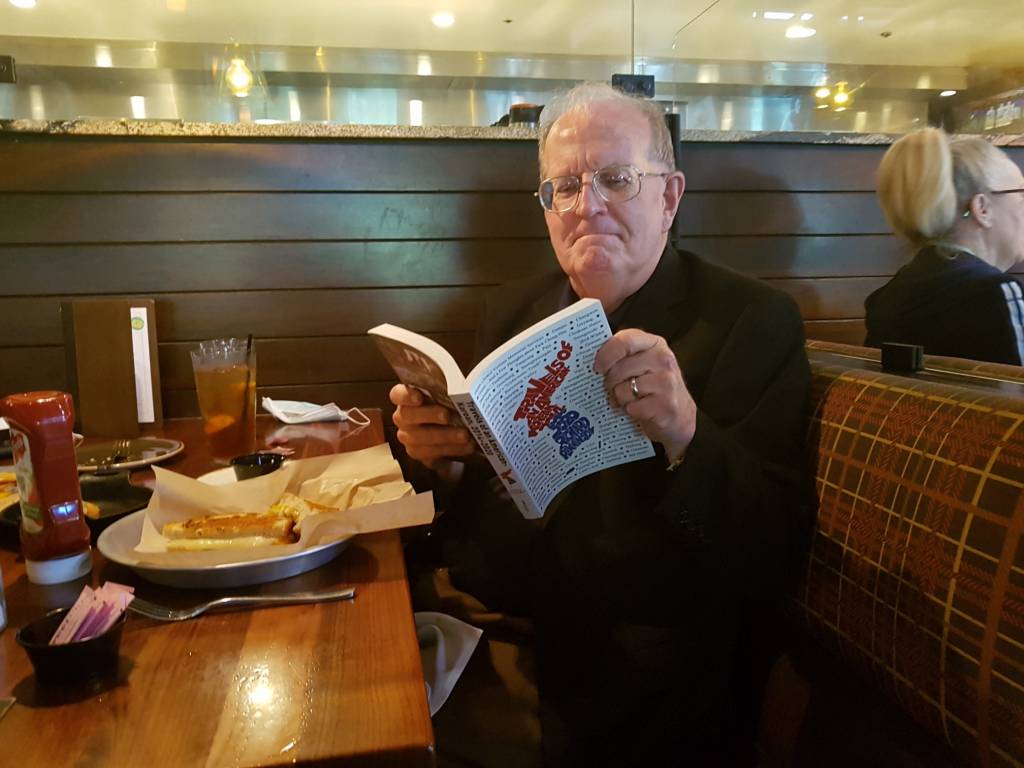
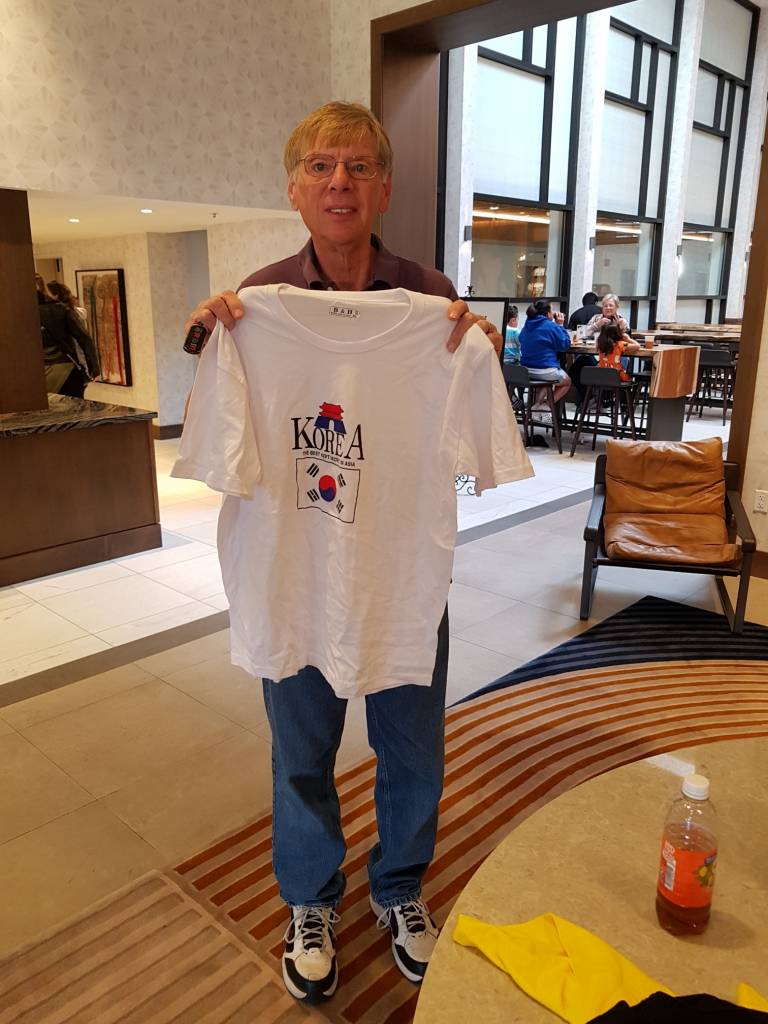
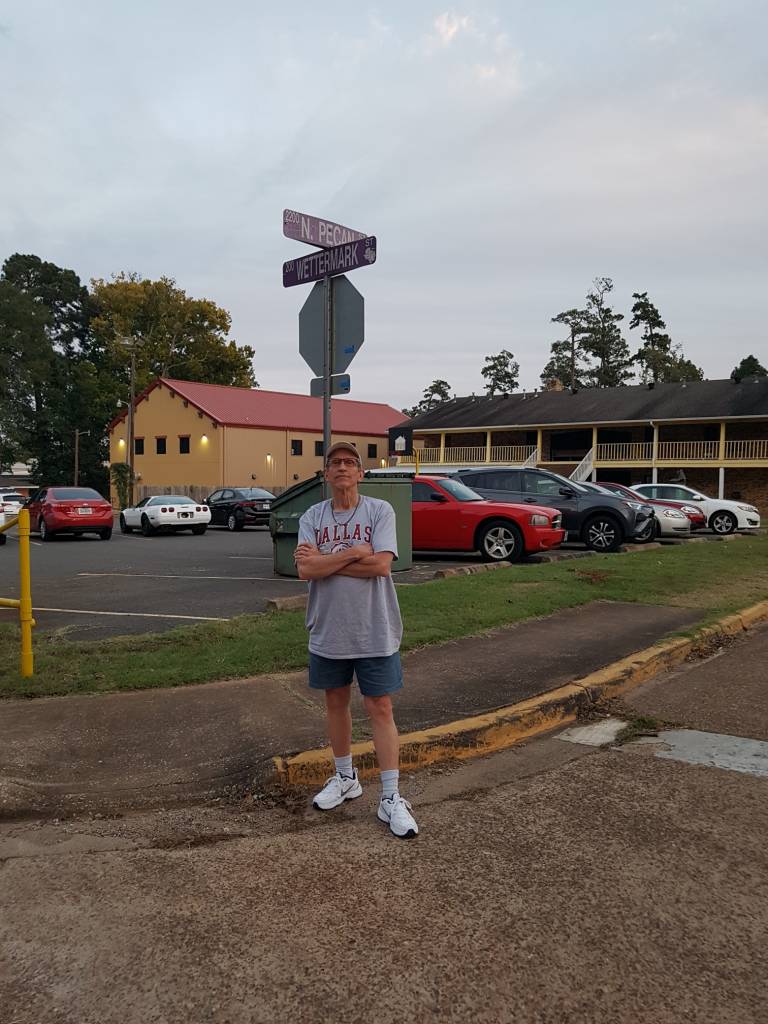
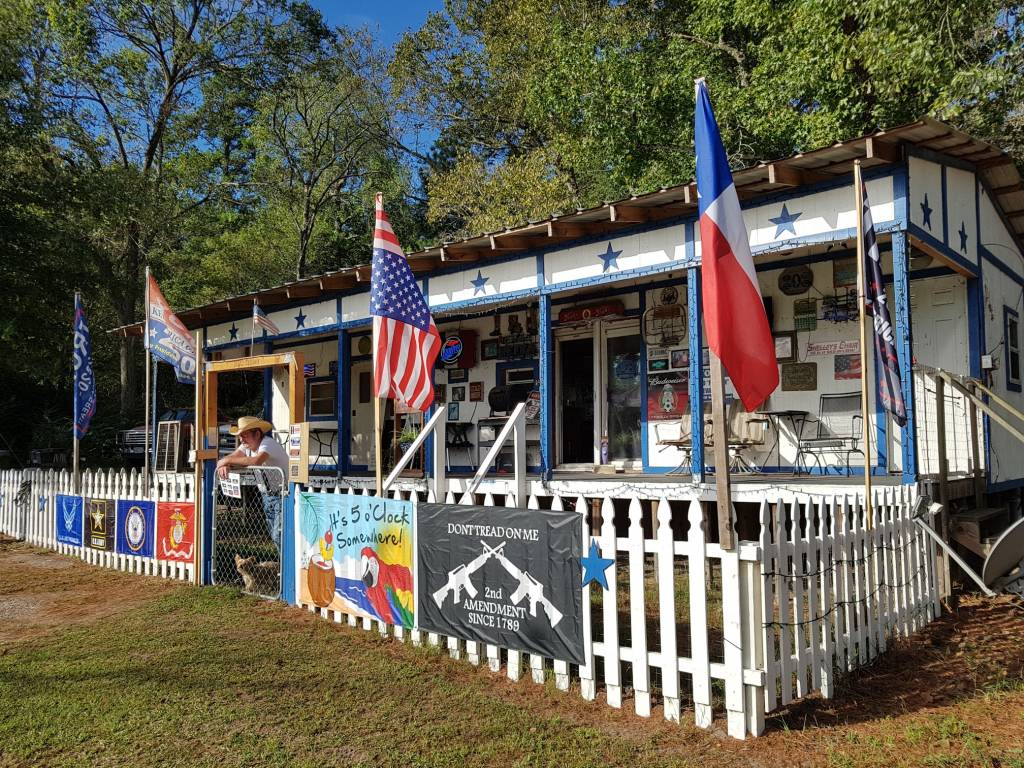
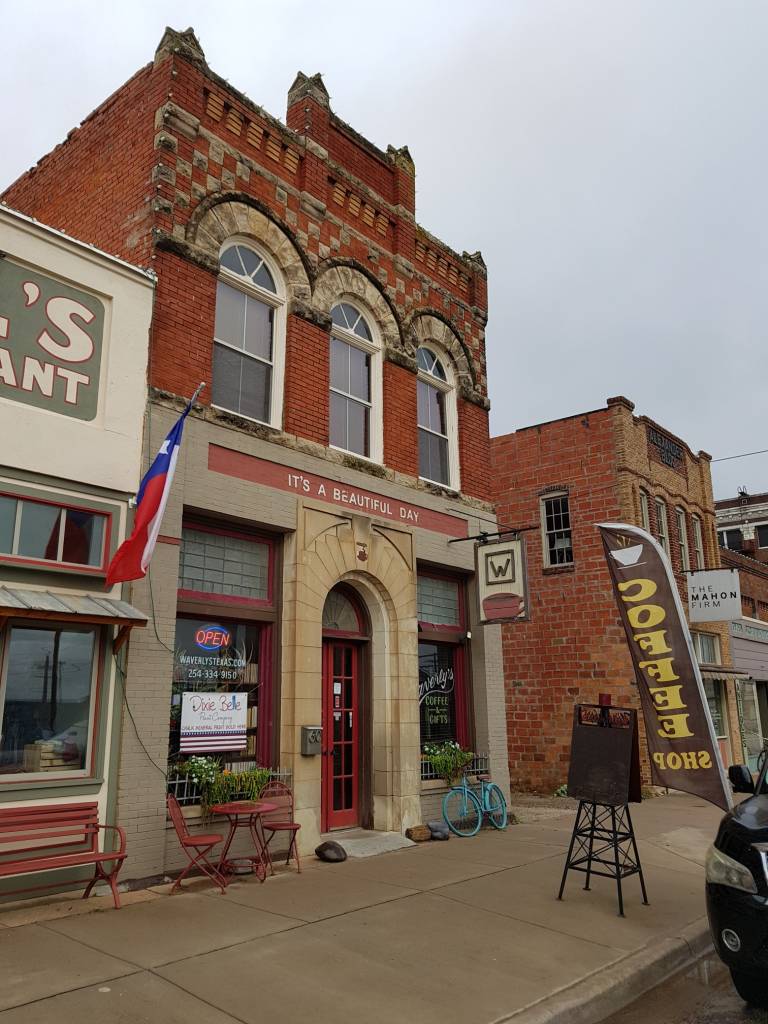
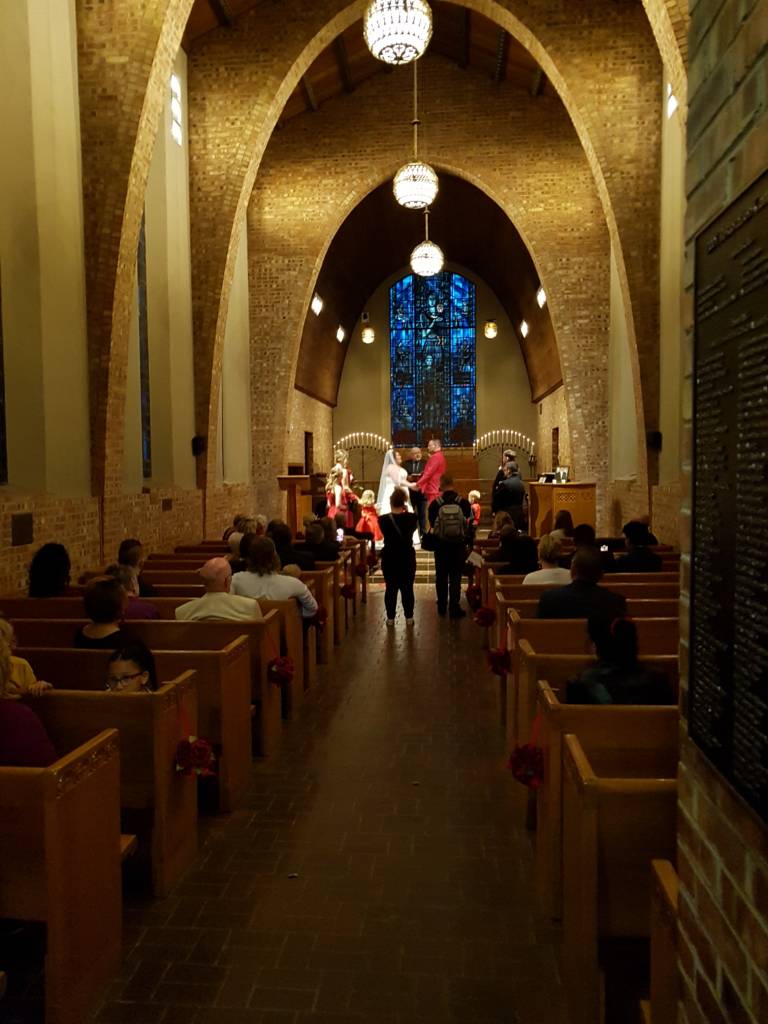
Wedding at the Little Chapel in the Woods, TWU.
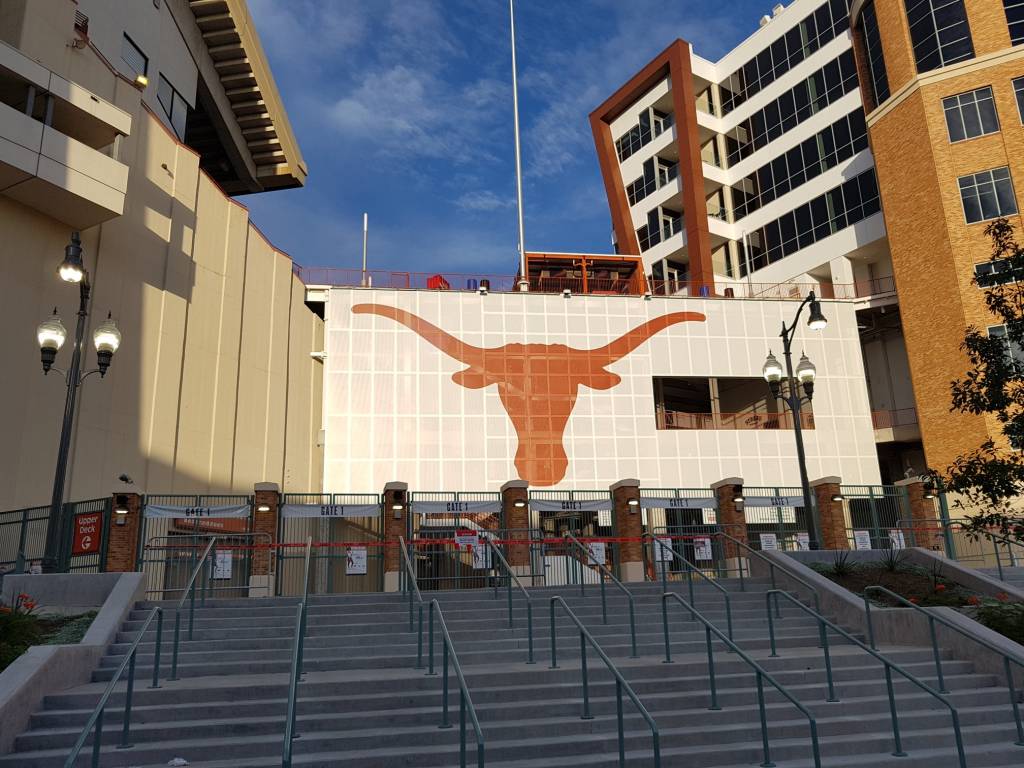
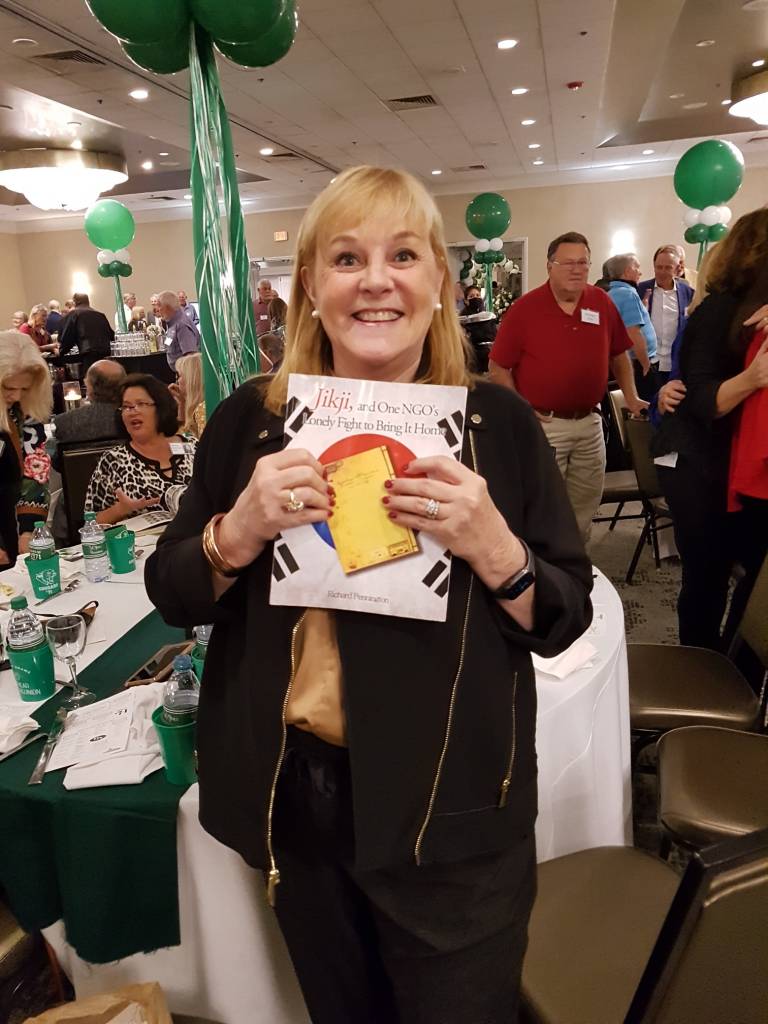
Debbie Hart Calhoun, also a Bryan Adams alumnus.
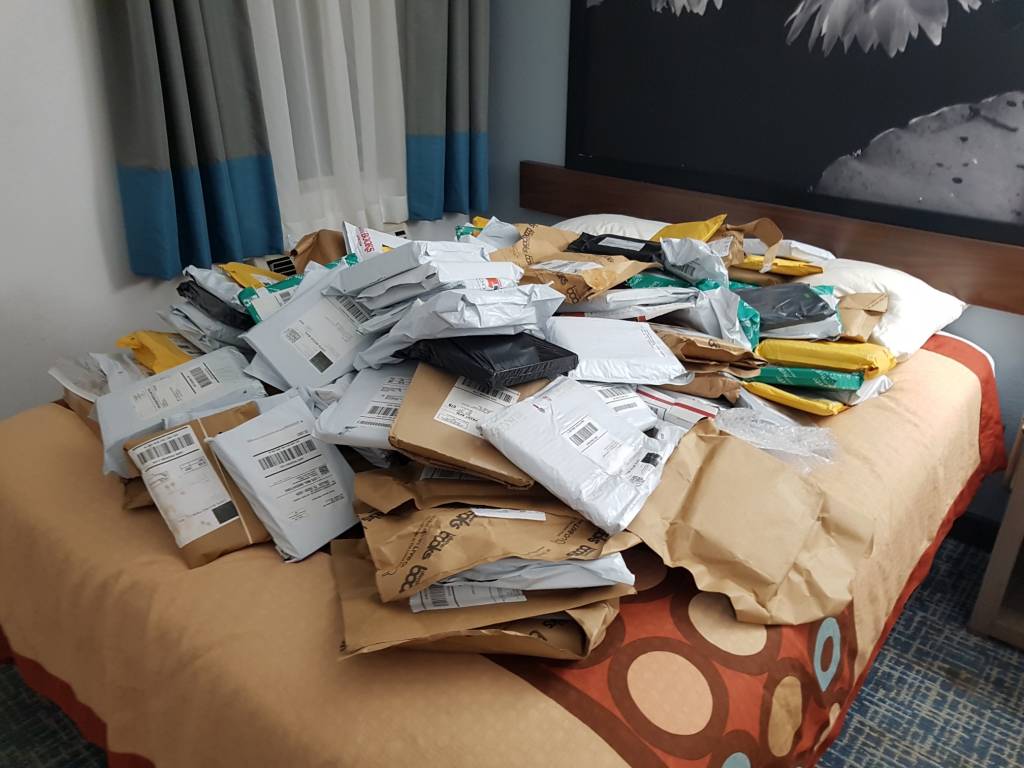
Books to be shipped back to Korea, read and savored.
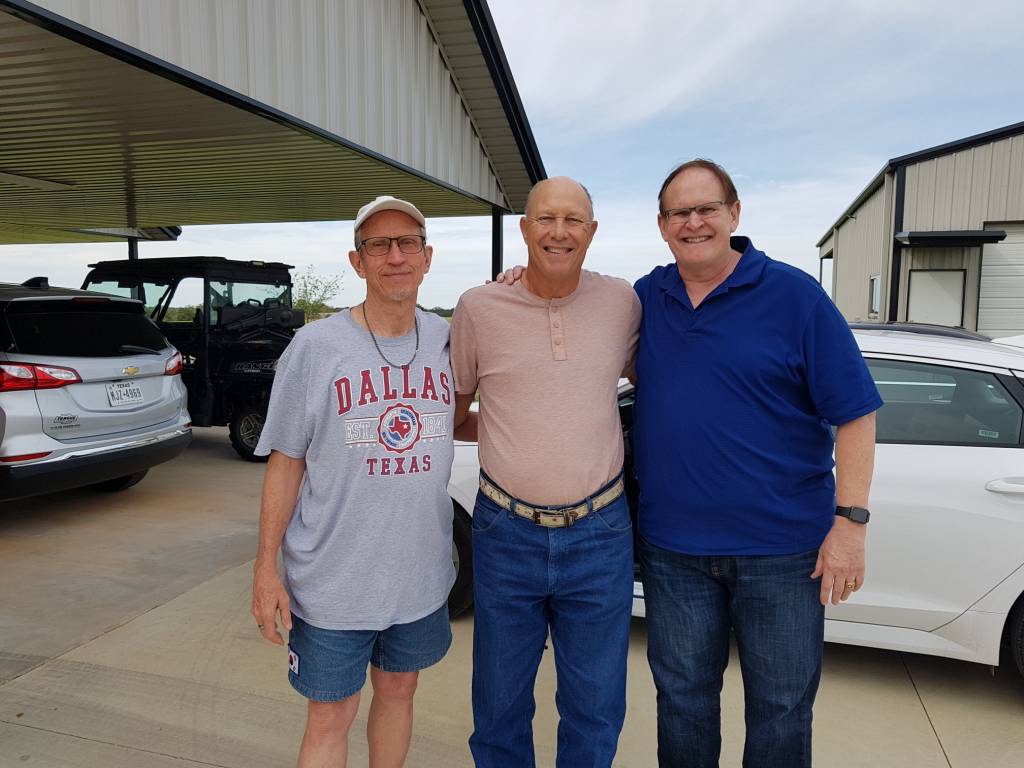
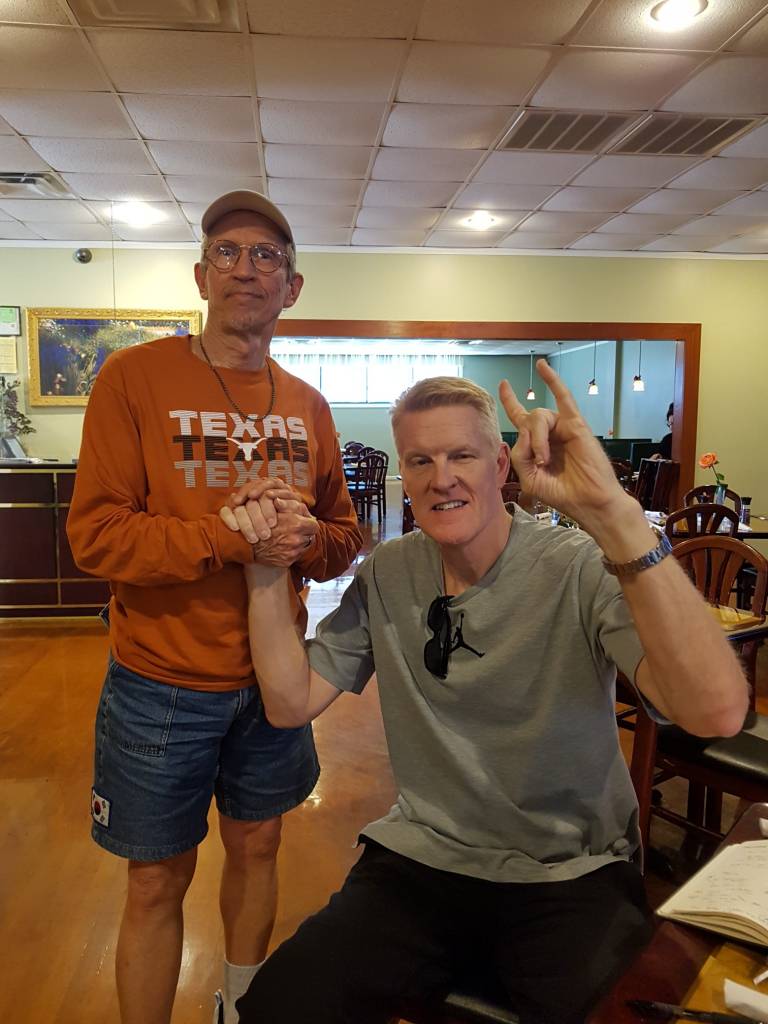
With Bill Wendlandt at Sky Restaurant in Victoria.
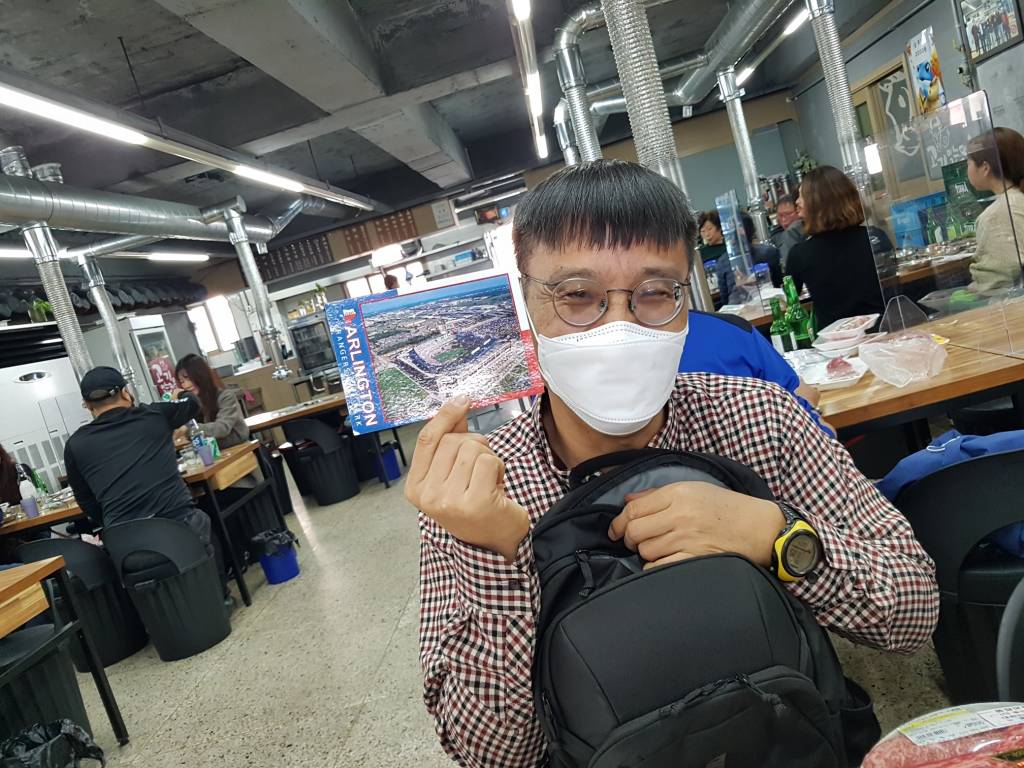
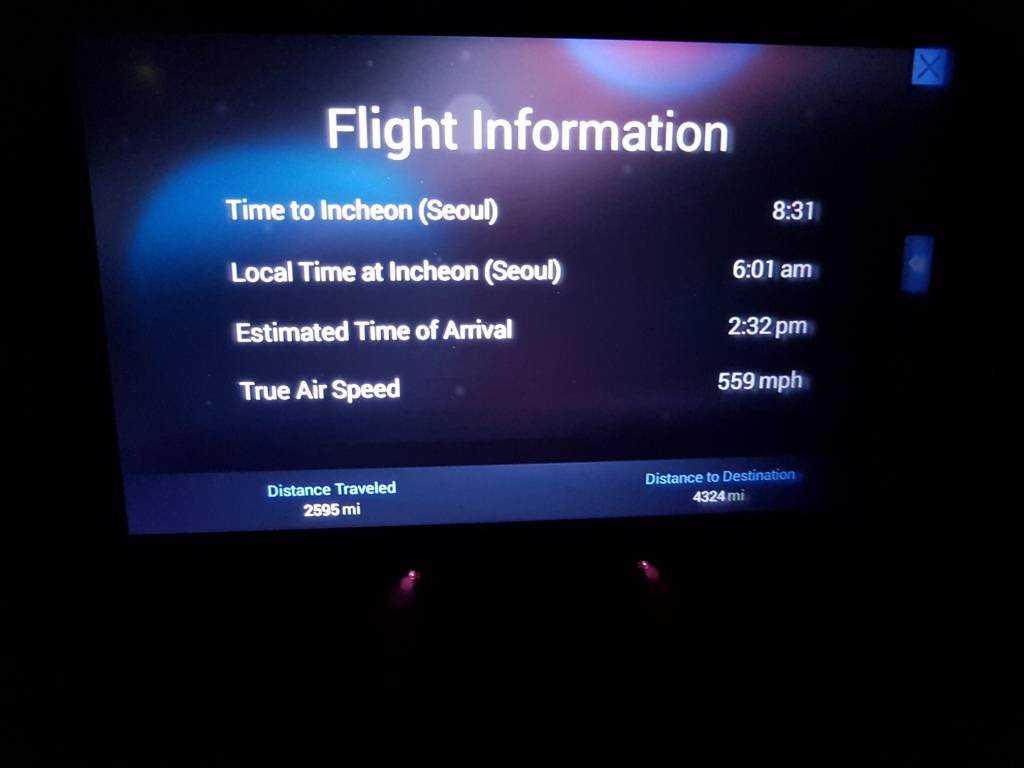

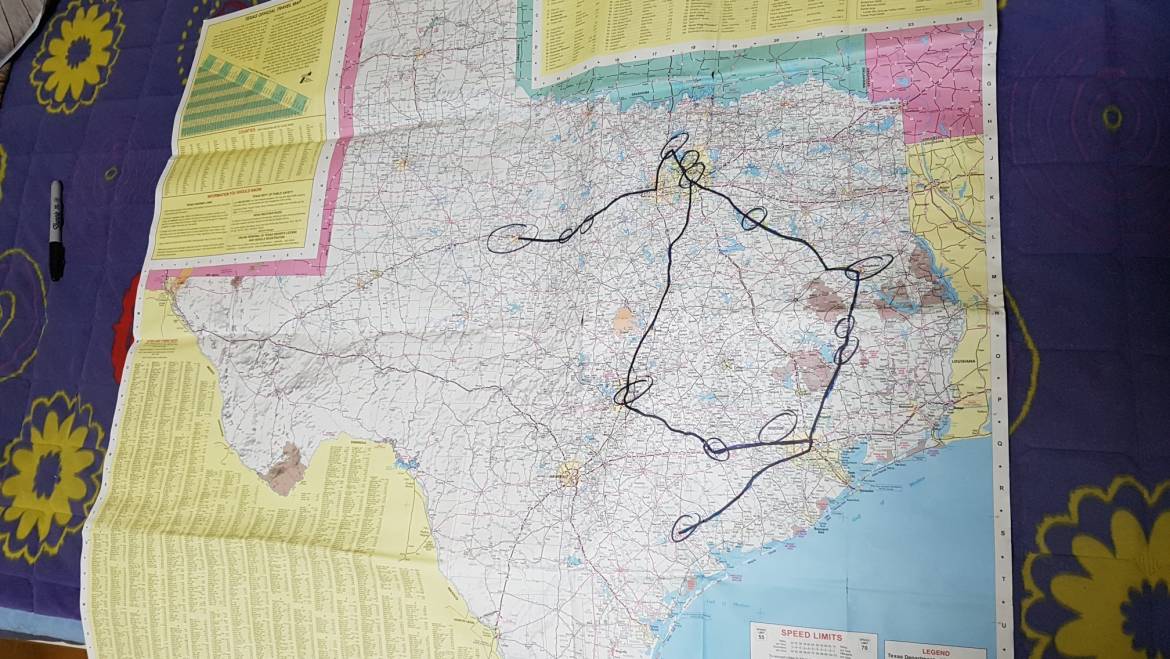
6 Comments
I read to the end your story about the trip and I noticed that in addition to satisfaction, you also had disappointments.
During this period, vaccine restrictions are often exaggerated, but must be observed.
I’m glad you got home to Seoul healthy and it all ended well.
Oh yes, Elly, that is true. Some disappointments, but not too many. And as you say, I got home safely!!
There is no better story teller than you… I lived through a lot of those adventures with you and I was still enthralled in your prolific prosaic flow of words. As usual, I learned a new word, “bucolic”, which I will stow away in my memory to be used appropriately in the future. You take lots of trips there in Korea, but this trip to USA had more difficult arrangements due to COVID. Too, you had prearranged all those meetings with people which were spread out geographically so far apart, and once again, you did it even with Texas thunderstorms, thus demonstrating that you are a master at traveling, and going with the flow when unforeseen/unplanned things happen. The biggest difference in this trip versus trips in Korea, is that the destinations in the USA were to meet people whereas the trips in Korea are to see historic sites. But in the end, people and sites are visited in both.
You, Mr. Scoggins, were a key part of this whole adventure!
Dear Mr. Scoggins,
I must admit that the (newly learned) word “bucolic” is even new to me in German (for me as a German native: bukolisch). And so I will follow your example and stow this new encounter away in my memory as well. So, thanks for that Mr. Scoggins for pointing it out again, and thanks to Richard for bringing it up in the first place 🙂
Thank you, Sabine!
Add Comment